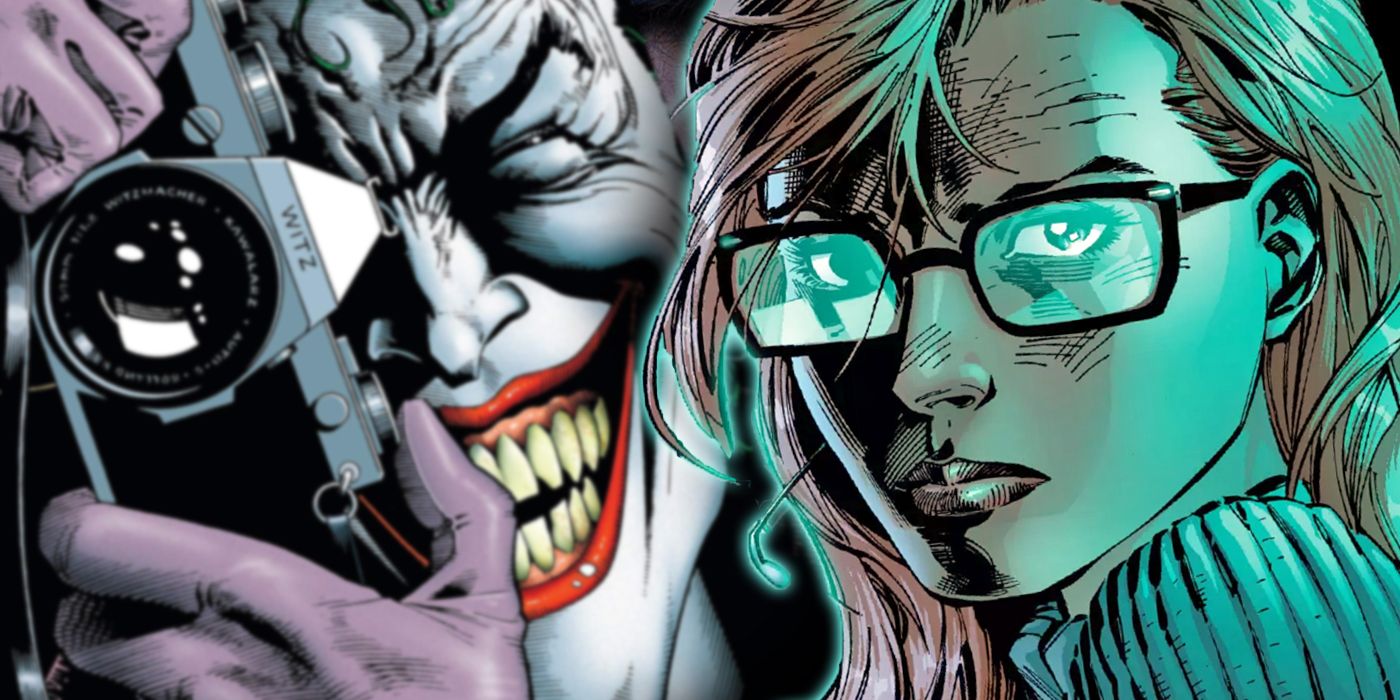
Today, we look into how Barbara Gordon first confronted Batman after the events of The Killing Joke.
In Comic Book Questions Answered, I answer whatever questions you folks might have about comic books (feel free to e-mail questions to me at brianc@cbr.com).
Reader Bret S. wanted to know if and when Barbara Gordon ever confronted Batman over the events of Batman: The Killing Joke.
Let's do a quick recap of where Barbara was after The Killing Joke, when I wrote last month about how John Ostrander and Kim Yale helped "save" her by transforming her into Oracle in the Suicide Squad.
Here is the infamous sequence from The Killing Joke where Barbara Gordon is visiting her father on a day that the Joker has decided to use to prove that anyone, even someone as stand-up and as righteous as James Gordon, could be broken by essentially "one bad day," as Moore and Bolland intercut throughout the stories flashbacks to a possible origin for the Joker where he, too, was a normal guy who just had "one bad day."
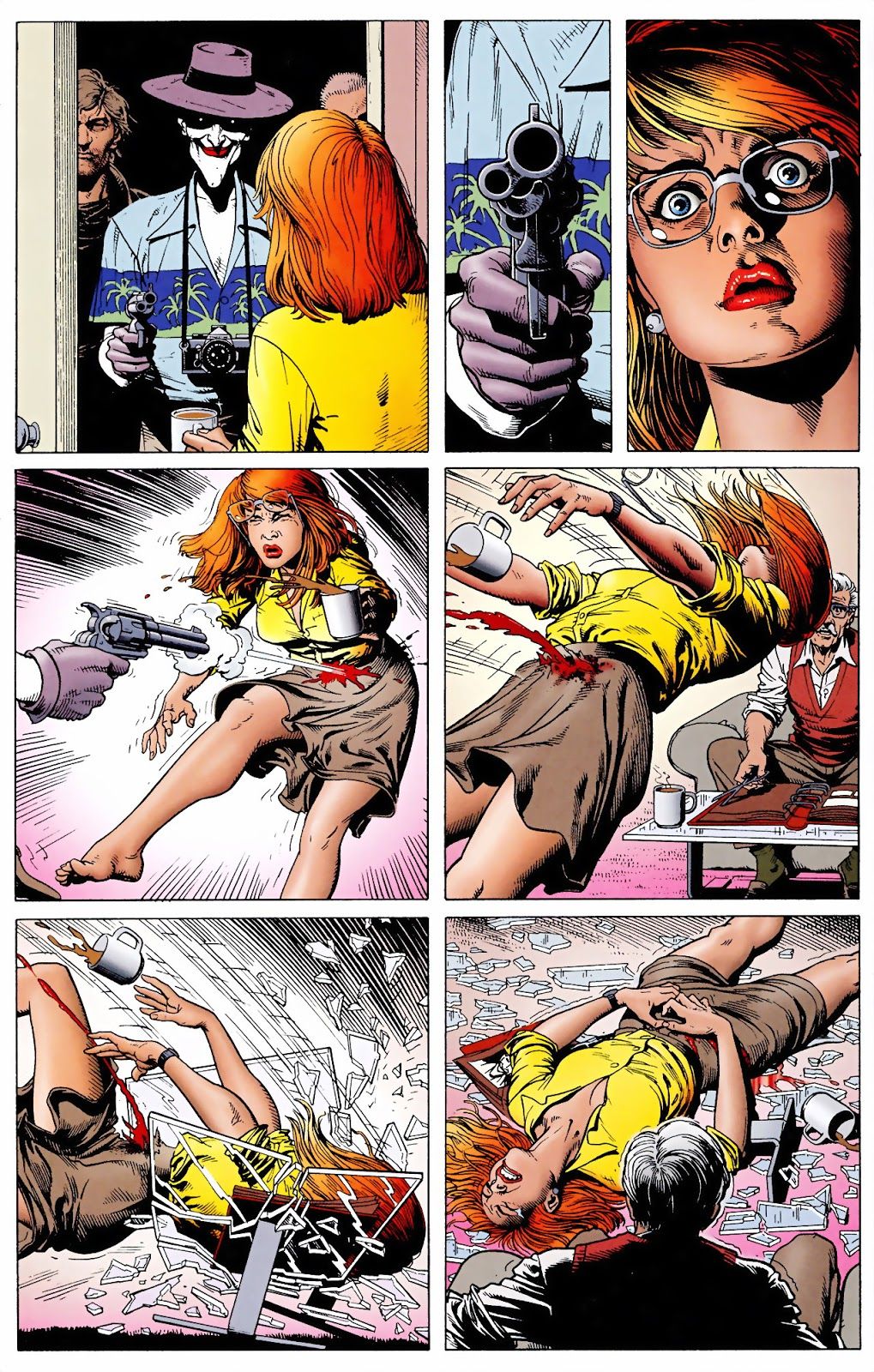
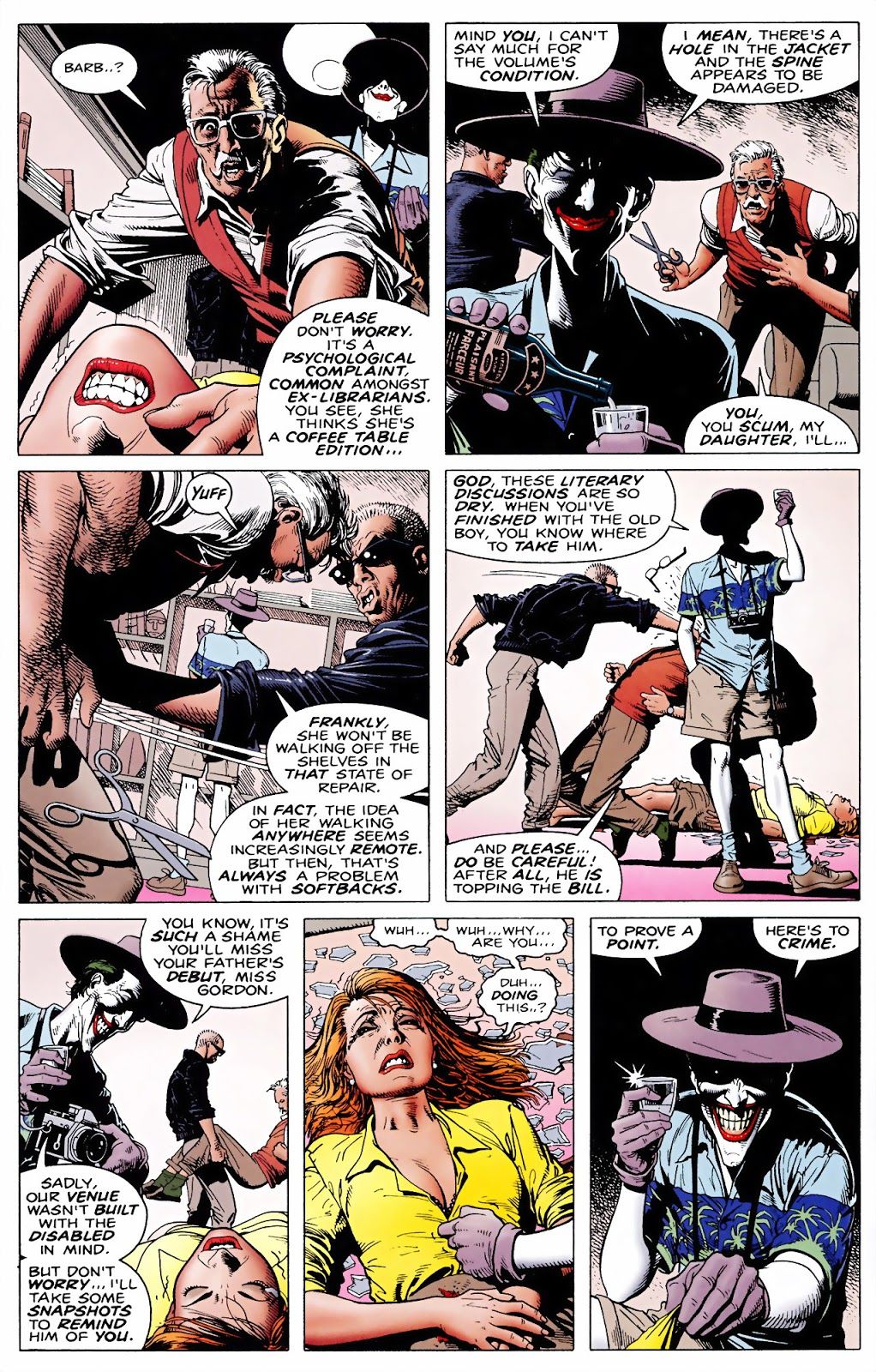
Here's Ostrander on the scene from his ComicMix column:
There stands The Joker and he has a large caliber handgun. He shoots Barbara somewhere below the middle. From the angle, Kim and I thought it was the spine although others think he actually shot her in the uterus. He then rips off her clothes, beats her, takes pictures of her (while her father, off panel, is held motionless by The Joker’s henchmen), and possibly rapes her. Kim and I felt that was strongly implied but, to be fair, it was not directly shown.
I know women who have been assaulted. I know women who have been raped. That’s heinous enough but can you imagine what it would be like to have been shot, to have your spine broken, and then to be sexually assaulted? The pain, the horror – I can’t dwell on it too long.
Kim and I discussed it. To have been shot at the close range, to have your spine shot out, should have killed Barbara. If not, Kim thought severe sepsis would have set in and Barbara would not have survived. However, in the story, she does. That’s a given.
I should point out that the cover has a close-up of the Joker aiming a camera at the reader and saying, “Smile.” In that context, the only possible interpretation I can conceive is that the reader, the viewer, is Barbara as she lay on the floor, after she had been shot, presumably after she had been violated.
How does that feel?
The comic book then ended with Batman capturing the Joker and freeing Gordon, but not before sharing a twisted laugh with the Joker over the sad, unending cycle of violence between the two men.
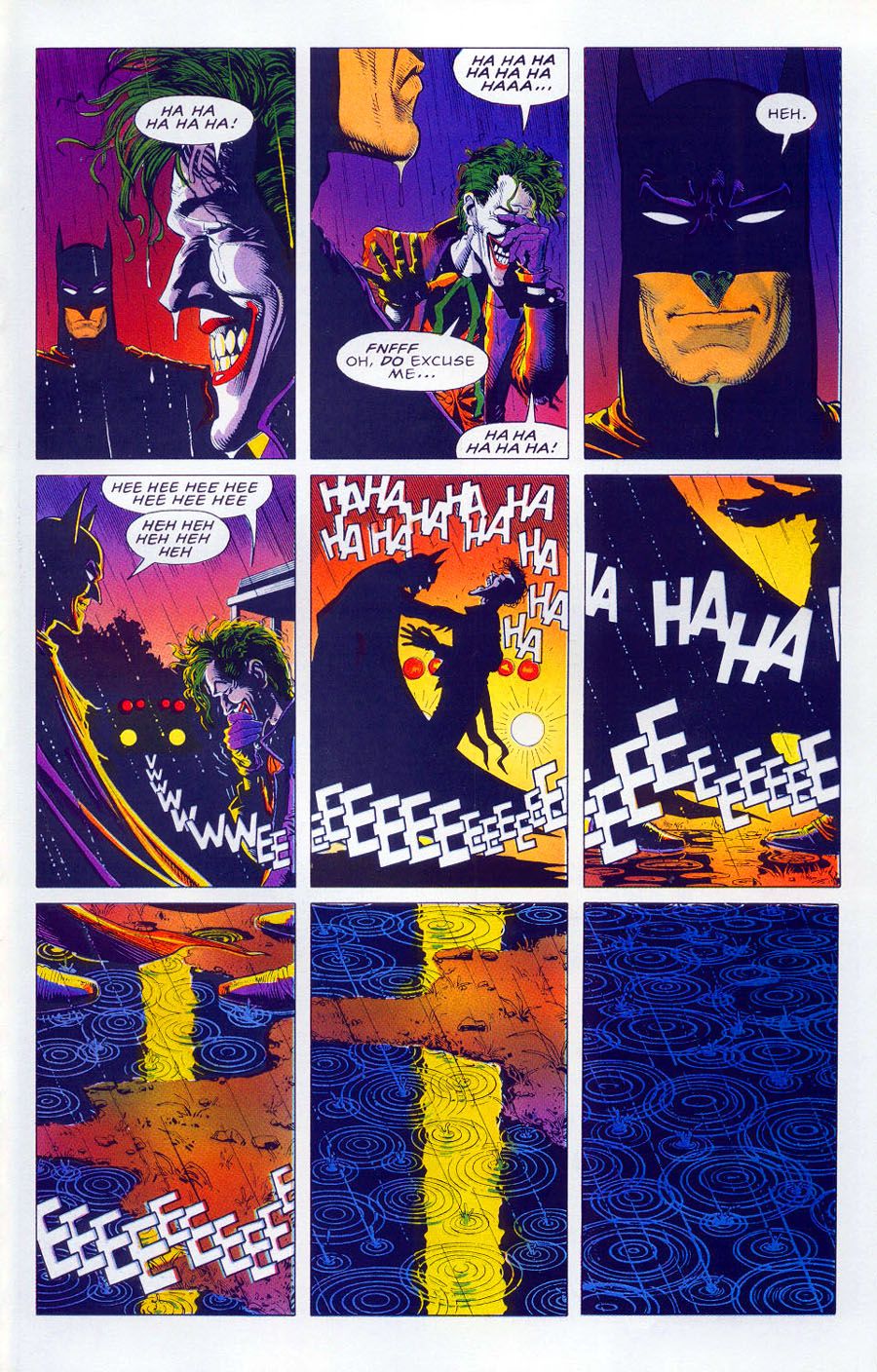
As Ostrander later recalled, “There were no plans for her in the continuity at that time. We decided that if that happened, we weren’t just going to make her better magically — we wanted to explore what happened when someone like her was crippled and how she would respond.”
The pair introduced a mysterious computer hacker who would help the Suicide Squad out, specifically Flo, the support staffer who was Amanda Waller's cousin's daughter and yearned to be part of the active team instead of just someone who helped them with computer issues. Well, Flo eventually DID get to go on a mission and, you guessed it, she died on that mission.
When the Squad return home in Suicide Squad #38 (by Ostrander, guest-scripter Robert Greenberger and artists Luke McDonnell and Geof Isherwood), Waller eventually contacts Oracle to let the hacker know about Flo's death and we finally get to see that Oracle is Barbara Gordon...
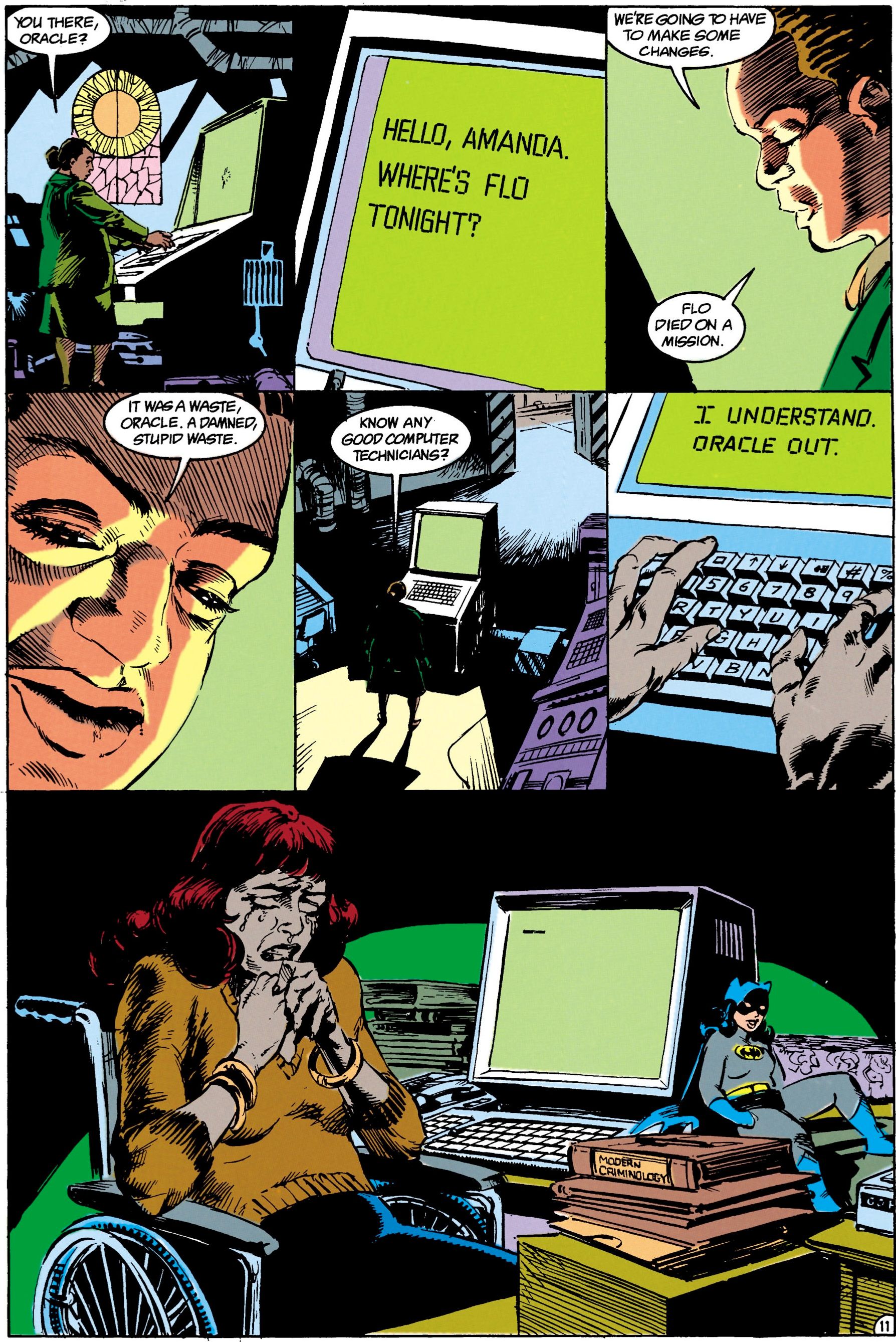
Slowly but surely, Waller convinces Barbara to come work for the Squad in a more direct capacity, while agreeing that she will not look any further into who Oracle really is, allowing Oracle to maintain the fake name of "Amy Beddoes," as Waller can tell that, whoever Oracle is, she is clearly a good and trustworthy person.
Batman and Oracle had their first chance for a real heart to heart in Suicide Squad #59 (by John Ostrander, Kim Yale, Geof Isherwood and Robert Campanella), when Batman was looking for information about the Atom (as we discussed in a recent column here) and Barbara got to give Batman some grief over how he use to blindfold her when she entered the Bat-Cave back when she was Batgirl...
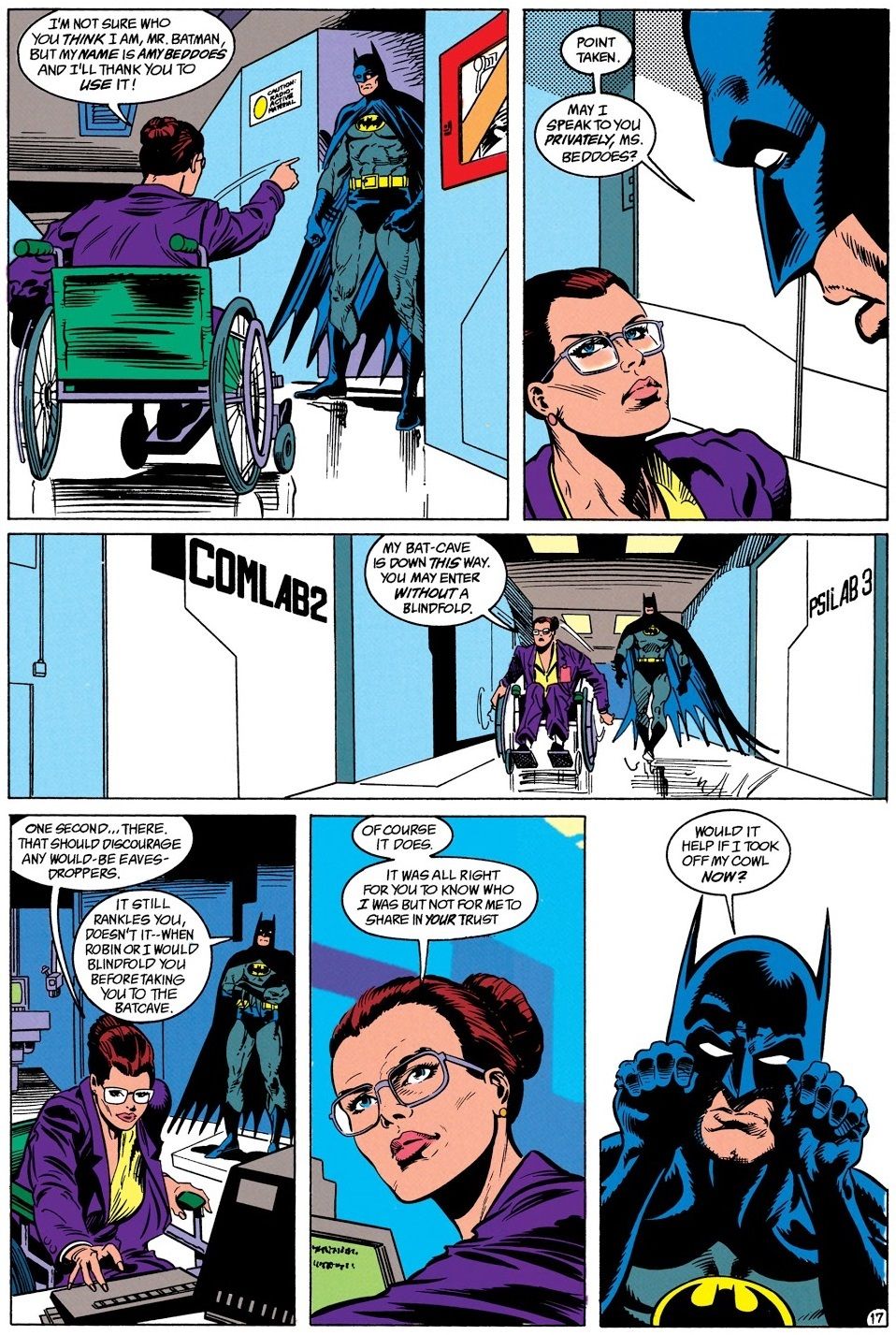
She cleverly tells him that he doesn't need to unmask, as she'll figure out his identity whenever she feels like it. Nice burn! The two then talk civilly after that.
Once Suicide Squad ended in 1992, Barbara bounced around the DC Universe for the rest of the year before Denny O'Neil then brought her over into the Batman books and she became Batman's chief source of information.
Now firmly a Batman character, Ostrander and Yale were able to give Oracle a proper origin in the pages of the Batman anthology, the Batman Chronicles, in 1996's Batman Chronicles #5 (working with artists Brian Stelfreeze, Karl Story and Mark Chiarello). Batman visits Barbara in the hospital before she is discharged and she tears into him, specifically the fact that he actually laughed with the Joker...was it over her?
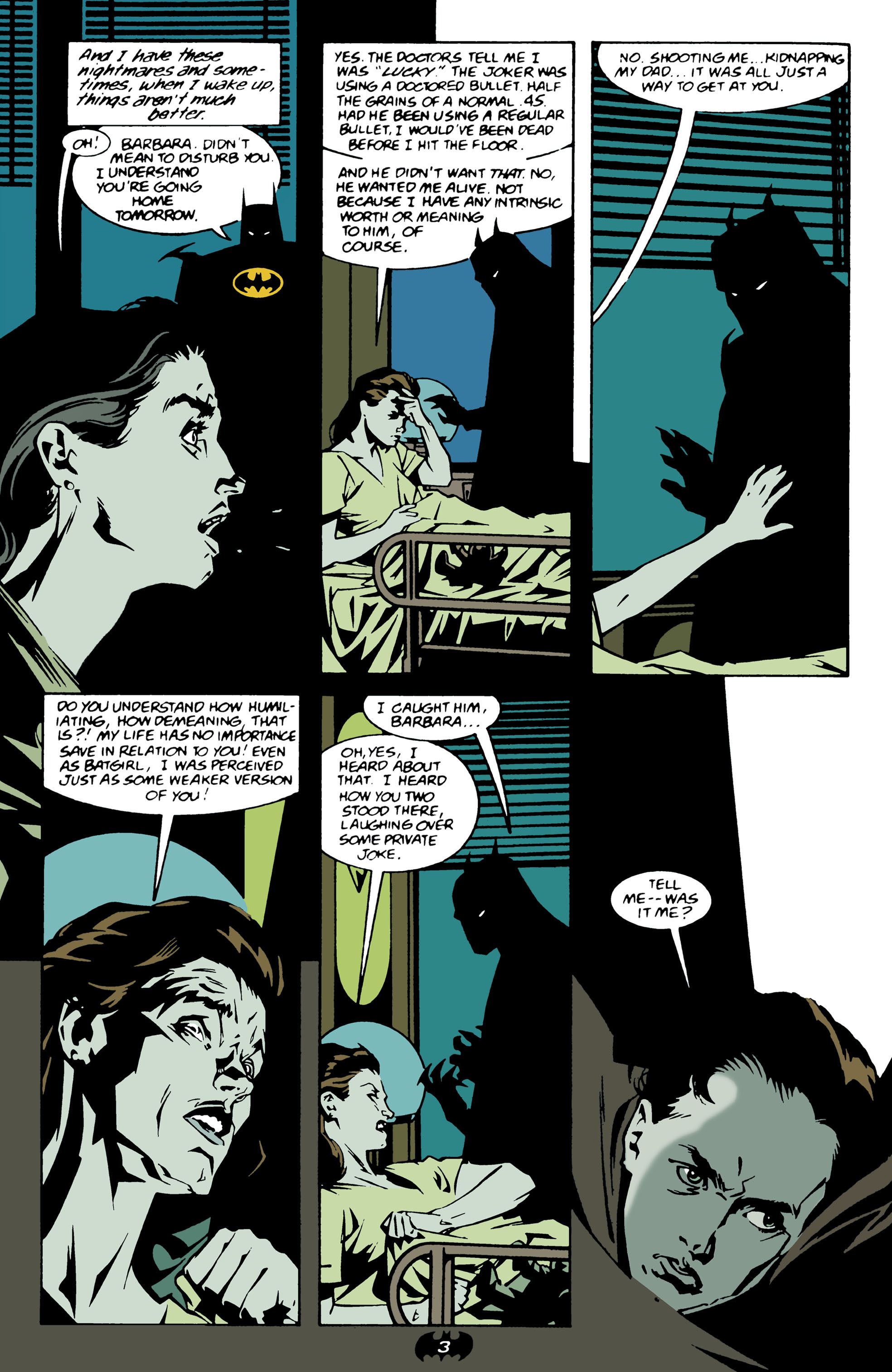
She knows it was a bit of a low blow, but she was glad to hurt him the way that she was feeling at the time....
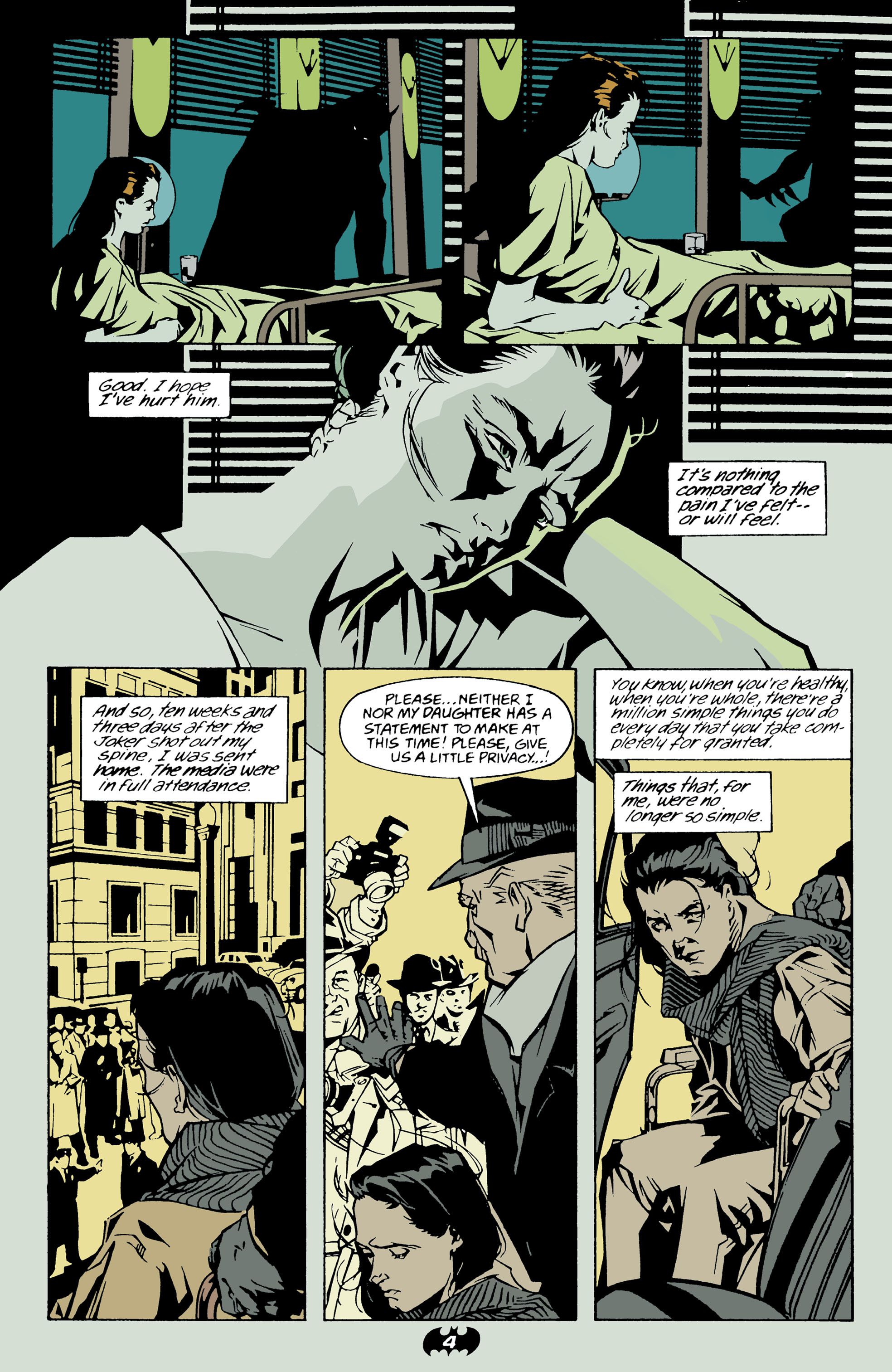
However, she redirects that pain towards helping people when she becomes Oracle, and when she is physically confronted by the villain that she is trying to take down, Barbara learns how to fight while in the wheelchair. She doesn't know that it is Batman who sends her Richard Dragon to train her (or maybe she does? Wouldn't it be fitting if she put the message out there knowing that Batman was likely monitoring her public messages?)...
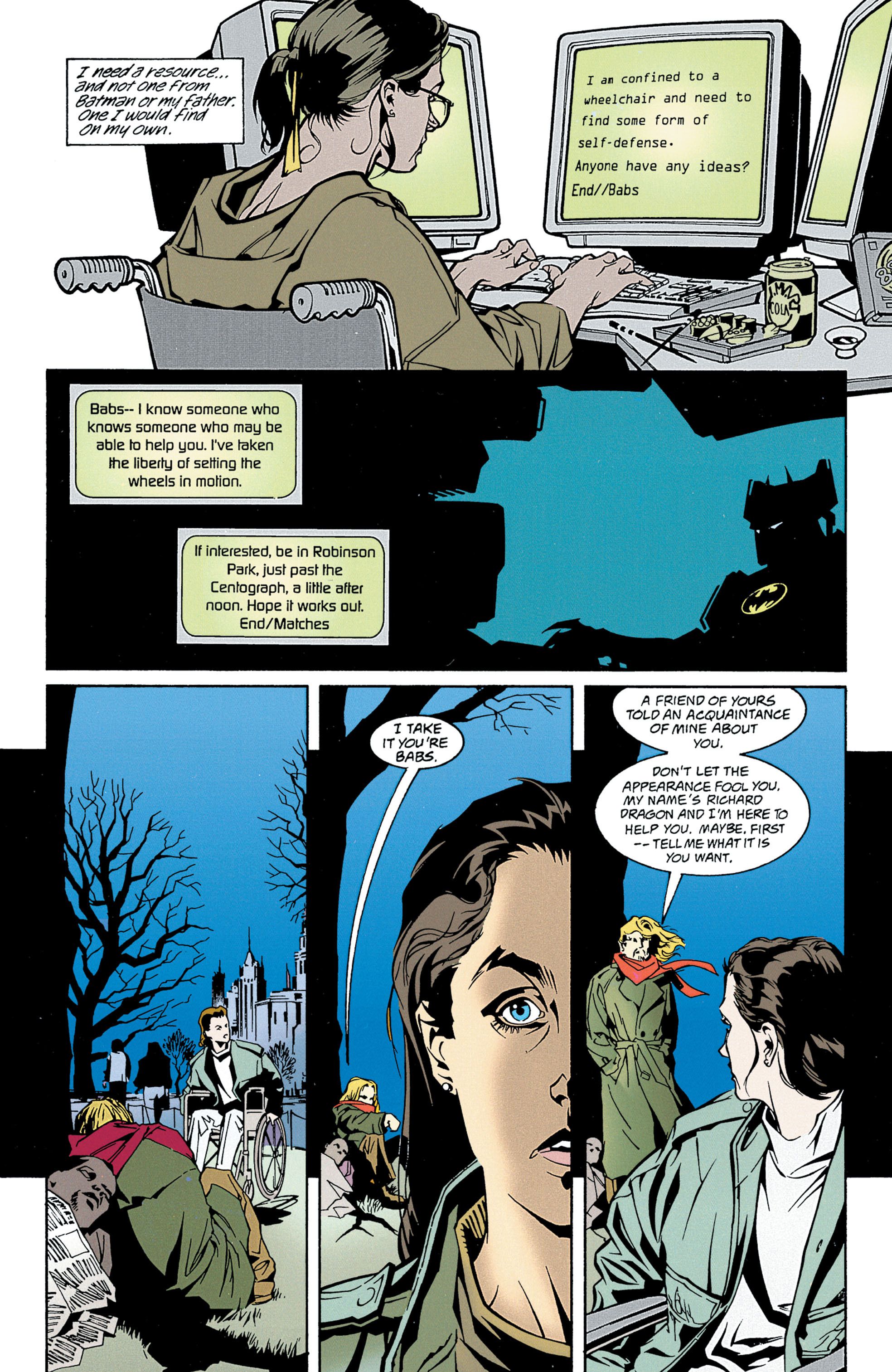
And so Oracle was born. It was tragically the last comic book project the brilliant Kim Yale ever worked on, as she passed away in 1997.
Thank you for the question, Bret. If anyone else has a comic book question, feel free to drop me a line at brianc@cbr.com.
0 Comments